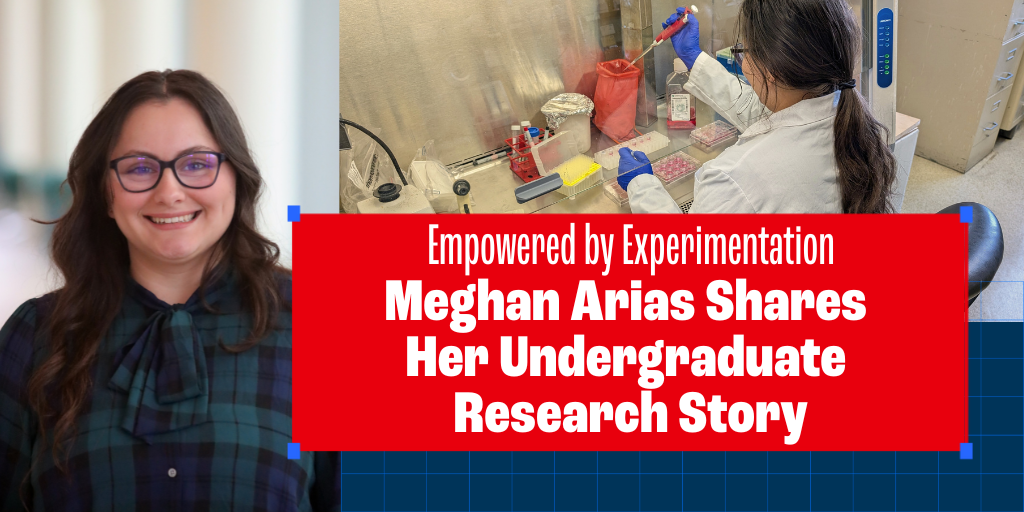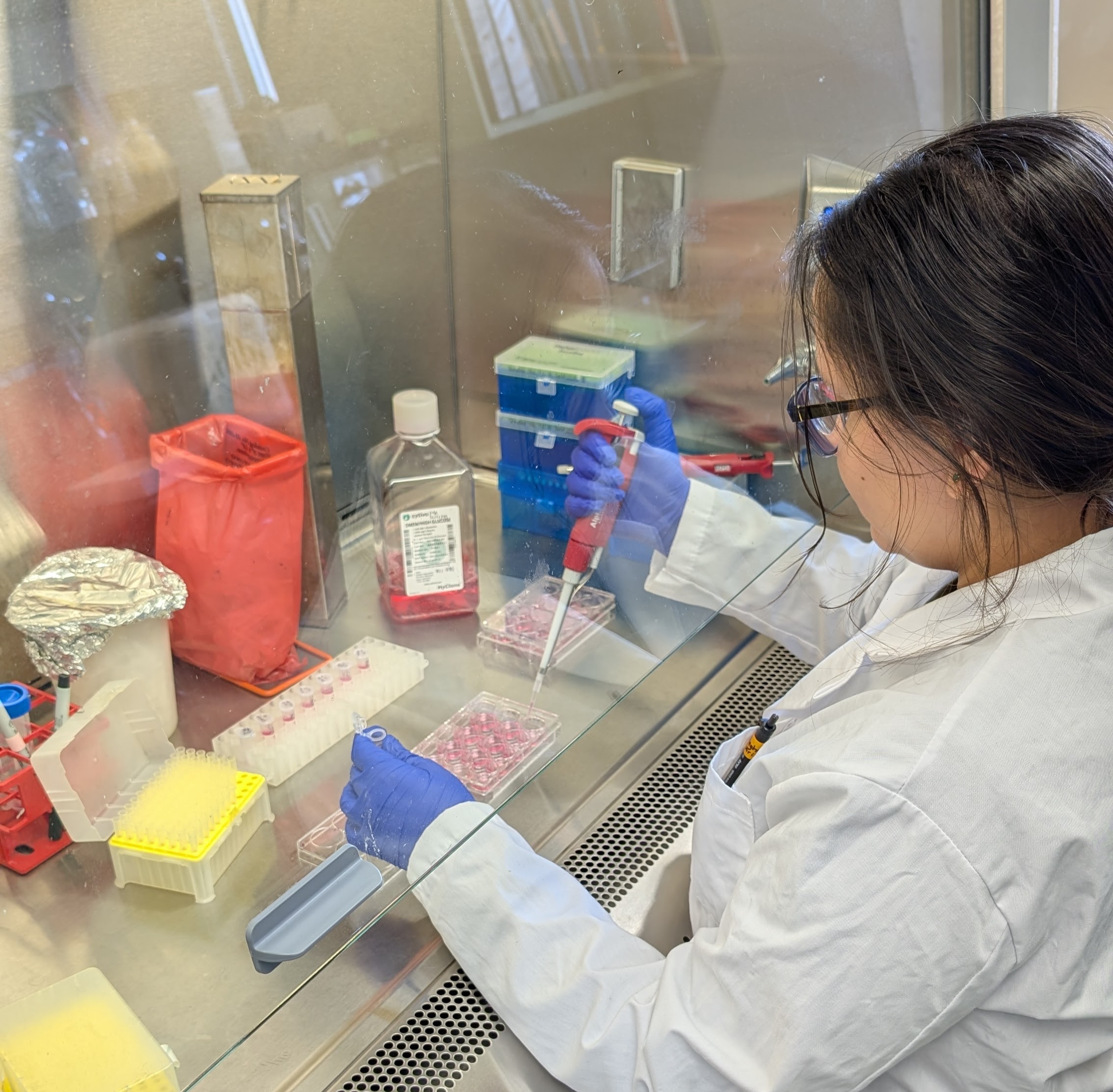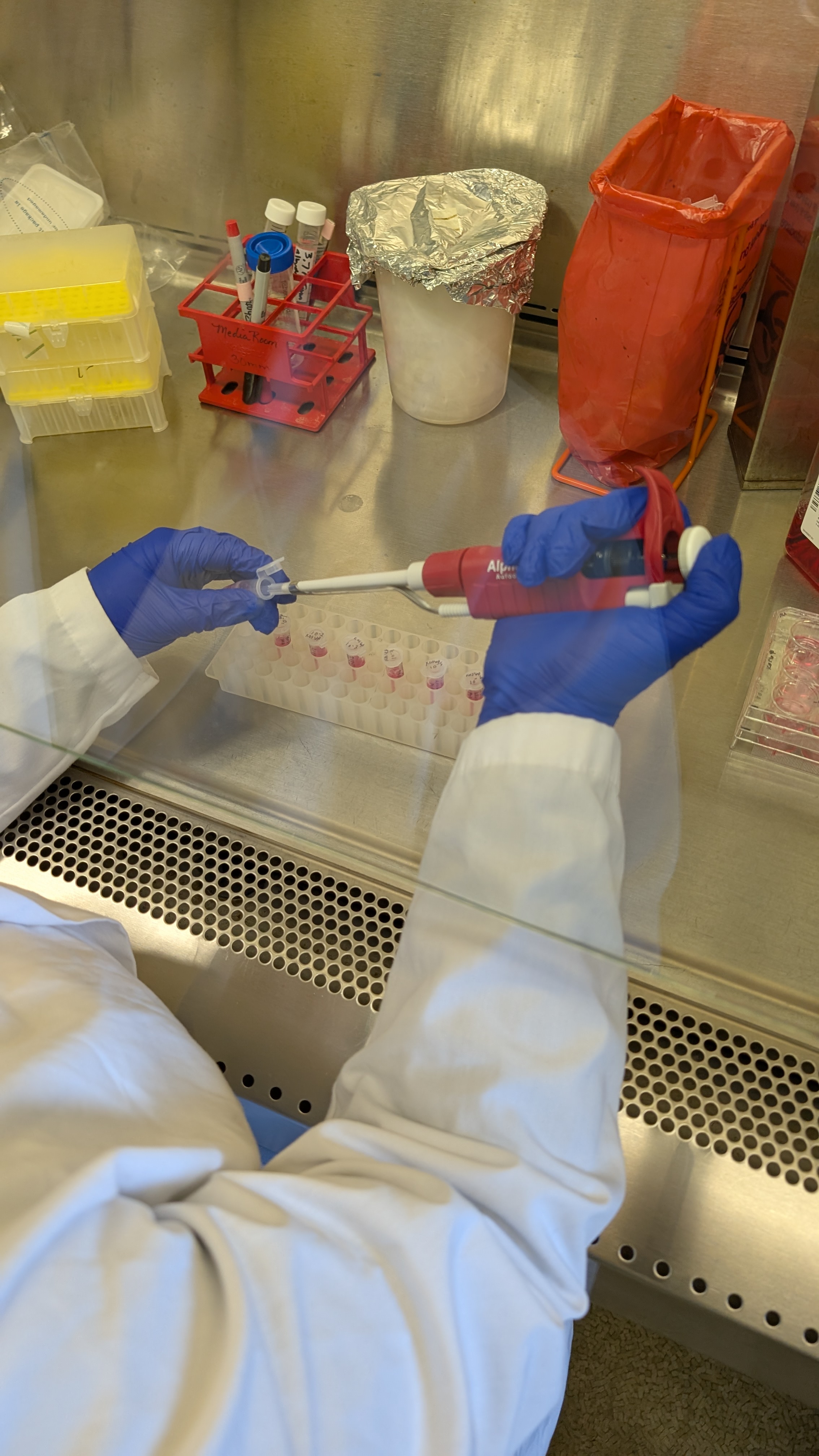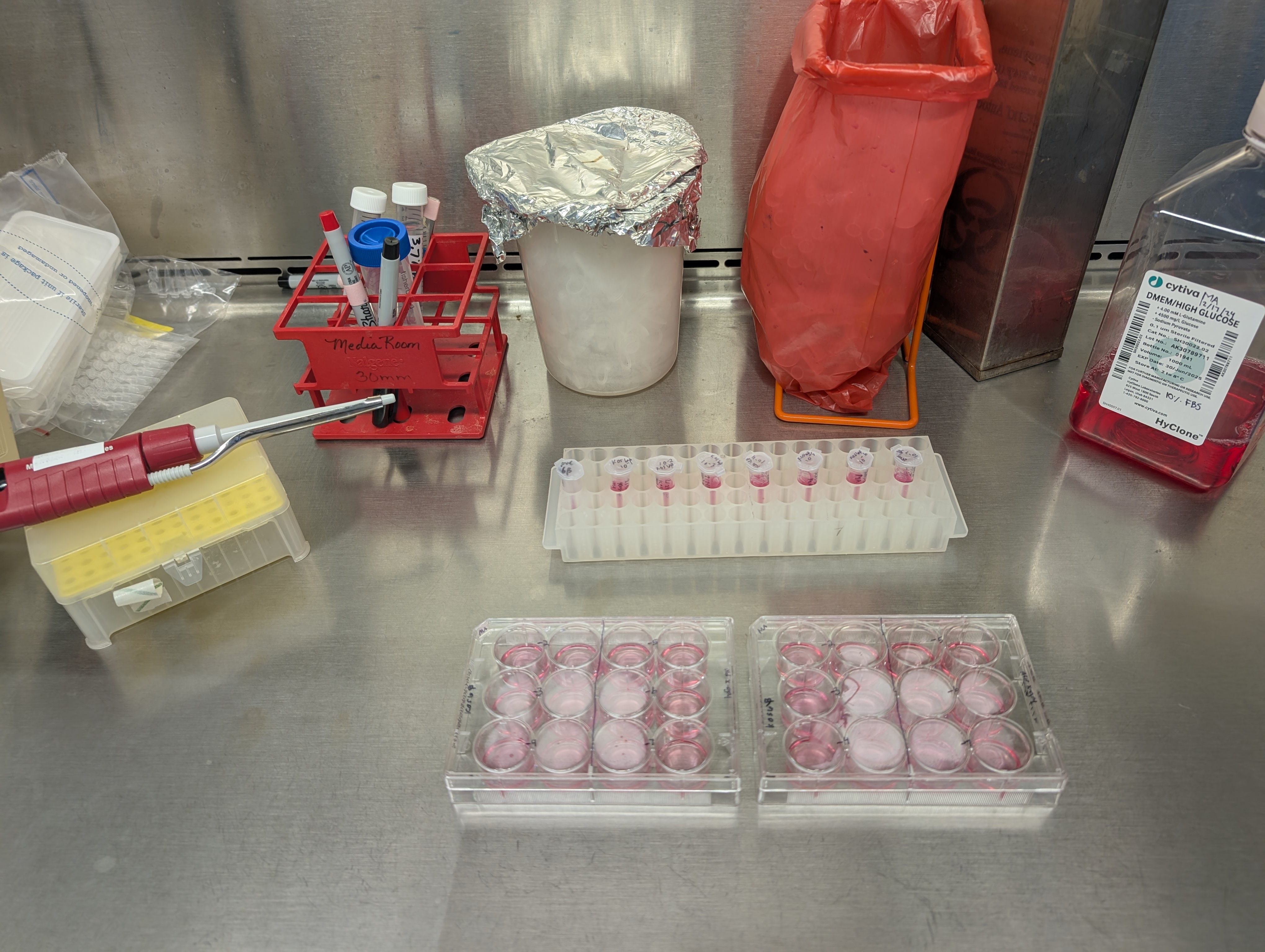Empowered by Experimentation: Meghan Arias Shares Her Undergraduate Research Journey

Meghan Arias is a Microbiology major in her third year at KU. Meghan received an Undergraduate Research Award for the Spring of 2025, which has allowed her to focus on her research, exploring how a host protein called PARP14 may inhibit herpes simplex virus 1 (HSV-1) in a strain-specific manner. We talked to Meghan about the topic of her research, what inspired her to pursue this project, advice she would give to students interested in research, and more.

What is your research project?
My research project is titled "Determining if PARP14 inhibits HSV-1 in a strain-specific manner." PARP14 is a host protein that has antiviral effects against coronaviruses and one avirulent strain of herpes simplex virus 1 (HSV-1). For my project, I infect cells lines that do and do not express the PARP14 protein and quantify the viral titers using a pathogenic strain of HSV-1 (strain 17) to determine the if PARP14's inhibition is strain specific.
What inspired you to take on this project?
I've been interested in microbiology research for many years. I joined a research lab because I wanted to learn about the scientific method and discover what it takes to conduct an experiment every step of the way. I hope to build a career in research that is closely related to drug development, making my project studying the antiviral effects of PARP14 appropriate.
 What real world applications does this research have?
What real world applications does this research have?
HSV-1 primarily causes oral sores that come and go throughout one's life. Lytic infection is activated by DNA damage, hormonal changes, and stress in the host. Studies have shown that between 60 and 80 percent of the global population is infected with HSV-1. While HSV-1infection is generally not life-threatening, there are a few susceptible groups that may be severely harmed. HSV-1 infection in infants can cause encephalitis, which may be life threatening, and corneal infection with HSV-1 is a leading cause of infectious blindness in western industrialized countries. Current treatments primarily consist of nucleoside analogs like acyclovir, but resistance to such drugs can develop over time. Understanding how PARP14 inhibits the replication of HSV-1 may pave the way to development of a novel antiviral therapy, ultimately improving patient outcomes.
Have you encountered any challenges during your research? If so, how did you overcome them?
One challenge I have is developing plaque assays for HSV-1 strain 17 in a human lung cell line. This strain forms syncytia, which causes infected cells to fuse with each other. Furthermore, the plaques with strain 17 are very small, making it difficult to identify and count the plaques. Currently, I am testing a new method to visualize plaques which will make them easier to count.
 Did you work with any faculty on this project? If so, how did you develop that relationship, and how has it impacted your project?
Did you work with any faculty on this project? If so, how did you develop that relationship, and how has it impacted your project?
I am working in the laboratory of Dr. Davido in the Department of Molecular Biosciences. I was introduced to him via Dr. Fehr when I asked about the possibility of joining the Fehr lab. It’s great to have an investigator that understands the learning curve involved in undergraduate research and supports my scientific development.
What advice would you give to other undergraduates interested in research?
I haven't been in research for a very long time, but I would tell other undergraduates interested in research that many experiments take time, so patience is important. Some experiments may not work on the first attempt but be resilient and try again- research is inherently an iterative process.